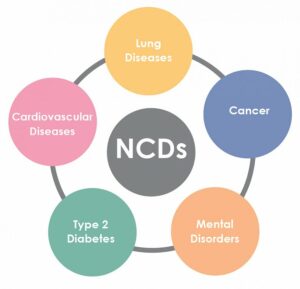Ghana government urged to support NHIS to cater for NCDs
 The Ghana NCD Alliance (GhNCDA) has called on the government to strengthen the National Health Insurance Scheme (NHIS) to provide for non-communicable related illnesses to reduce the financial burden of patients.
The Ghana NCD Alliance (GhNCDA) has called on the government to strengthen the National Health Insurance Scheme (NHIS) to provide for non-communicable related illnesses to reduce the financial burden of patients.
A Civil Society Status Report on National NCD Response and Landscape in Ghana said the increasing burden of non-communicable diseases (NCDs) and the rising out-of-pocket payment was placing enormous socio-economic challenges on the population.
“The lack of vital NCD services including mental health on the NHIS has promoted out-of-pocket payment of the services and bear financial constraints on people and is reducing the culture of people visiting health facilities for screening to ensure early detection,” it stated.
The report initiated by the GhNCDA said: “According to a study conducted to assess management of NCDs in Ghana reported that patients had financial challenges in affording the cost of management, getting transportation fare for review, and acquiring anthropometric equipment for monitoring the conditions at home.
“This confirms findings from previous studies that the diseases have serious socio-economic consequences for patients through increasing individual and household impoverishment.”
The report said the plethora of challenges faced in the management of NCDs reflected the systemic lapses inherent in the health system of Ghana and militate against the possible achievement of the Sustainable Development Goal 3.4 target of reducing by one-third, premature mortality from the diseases through prevention and treatment by the year 2030.
The NHIS is Ghana’s social health insurance policy established in the year 2003 to ease the financial burden of accessing healthcare, particularly for the poor.
The report stated that the declaration of the Universal Health Coverage (UHC) as a policy for all countries comes timely as it seeks to ensure all people can use the promotive, preventive, curative, rehabilitative, and palliative health services they need.
“These services should be of sufficient quality and effective and should not expose the user to financial hardship,” it said.
Source: GNA
